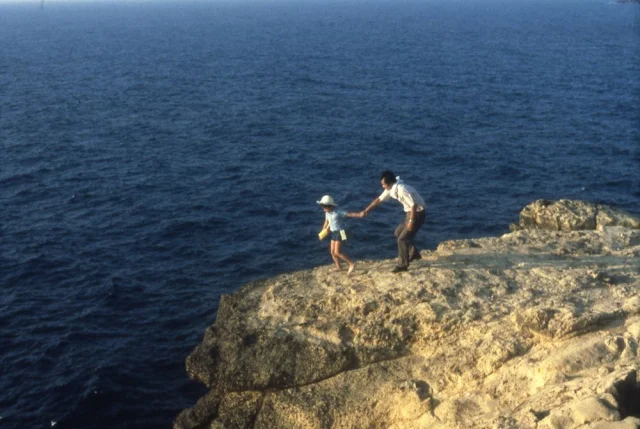 |
| Hiroki Iwase and Ken Ogata in The Demon |
Oume: Shima Iwashita
Riichi: Hiroki Iwase
Kikuyo: Mayumi Ogawa
Yoshiko: Miyuki Yoshizawa
Director: Yoshitaro Nomura
Screenplay: Masato Ide
Based on a novel by Seicho Matsumoto
Cinematography: Takashi Kawamata
Art direction: Kyohei Morita
Film editing: Kazuo Ota
Music: Yasushi Akutagawa
The title suggests a horror film, which in its profoundly disturbing way The Demon is. Except there are no supernatural demons to be exorcised in Yoshitaro Nomura's film. There are only horribly flawed human beings who do things that we encounter frequently in the news media: They abuse children. Nomura is so unsparing in his treatment of the subject that for many the film will be impossible to watch, and only the distancing inherent in the medium of film made it possible for me to work through its more disturbing moments. I had to remind myself of what a tremendous acting job Ken Ogata brings off as he plays Sokichi, whose mistress one day dumps their three small children -- an infant, a 4-year-old girl, and a 6-year old boy -- on him and his wife, Oume, who until this point hasn't known of their existence. I steeled myself by admiring the camerawork and editing when Sokichi, pressured by Oume, sneaks away from the little girl and abandons her amid a throng of tourists, only to have their eyes meet as the elevator door taking him away closes. He has already allowed Oume to "accidentally" bring about the death of the infant, and there is worse to come when they plot to rid themselves of the boy. In the end, however, I'm not certain that The Demon entirely justifies telling us of the horrors inflicted on the children. There is an ironic ending that suggests justice will be done, although whether that justice is in measure to the pain that has been inflicted is doubtful. The result is a kind of nihilistic acceptance that things like this occur and will continue to occur, despite our disgust at them, and there's not much we can do about them.